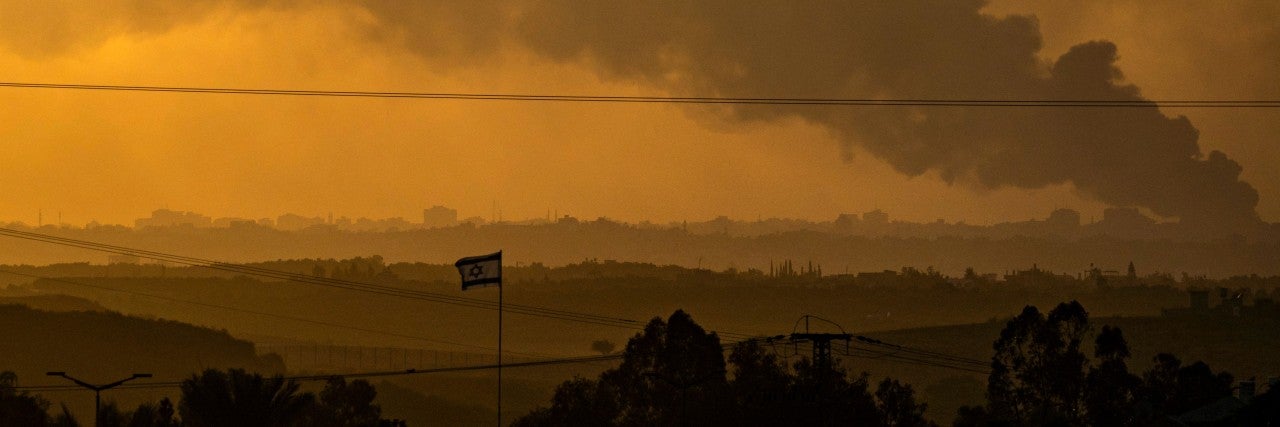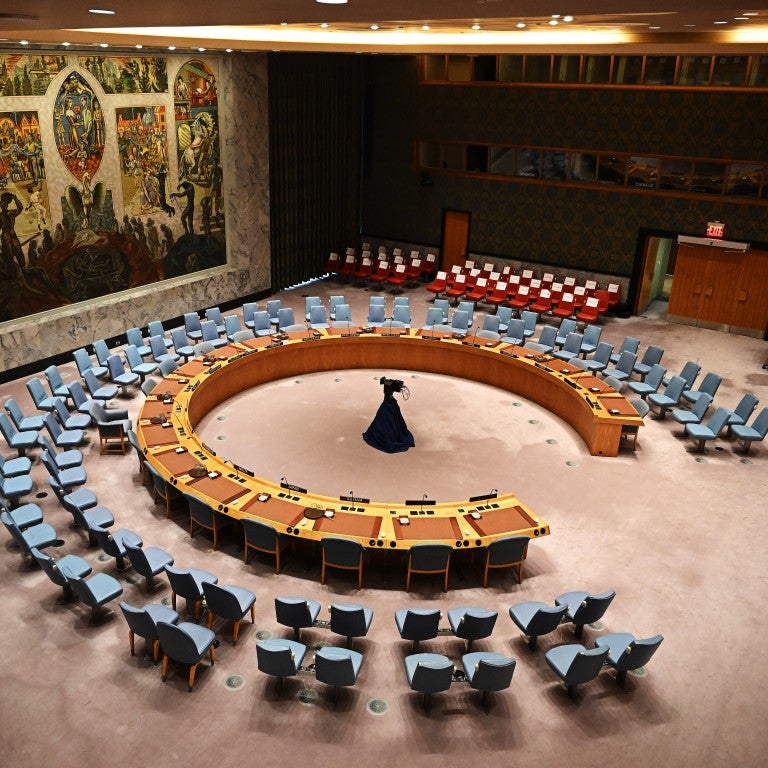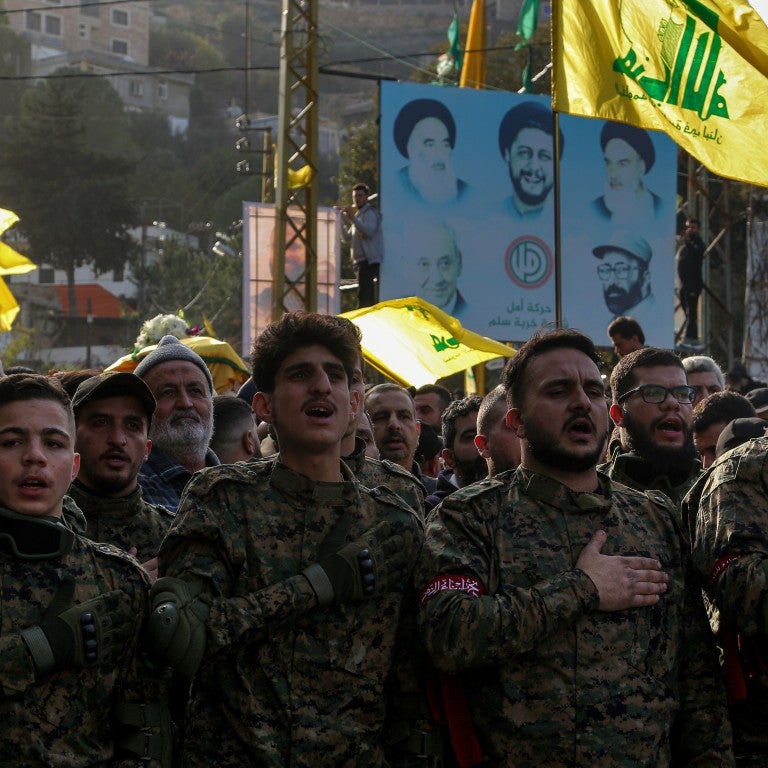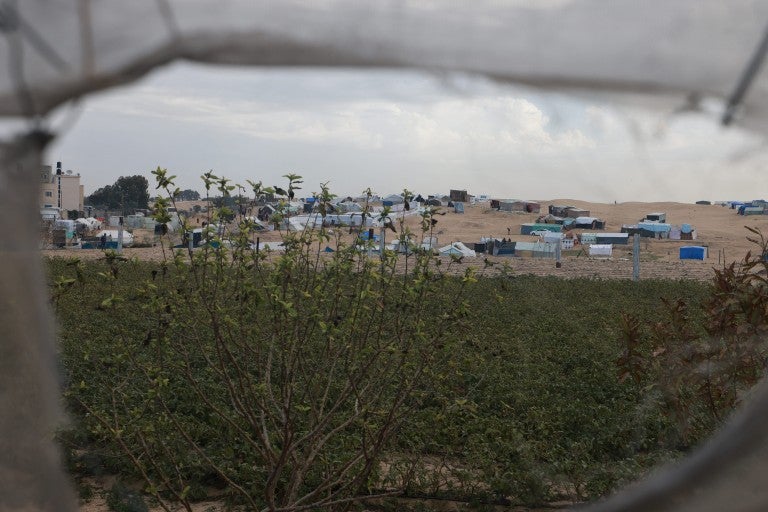November 14, 2023
The October 7 terror attack by Hamas in which the terror group controlling Gaza massacred 1,200 Israelis and took over 240 hostages fundamentally altered Israel’s posture toward Hamas.
Gone are the days when ceasefires and economic incentives were viewed by Israeli decision-makers as viable strategies for deescalating tensions with the Iran-backed terror group. Prior to October 7th, the border between Gaza and Israel had been quiet, with Israel permitting 30,000 Gazans to enter Israel every day in order to allow for better economic opportunity.
“Just as the United States would not agree to a cease-fire after the bombing of Pearl Harbor or after the terrorist attack of 9/11, Israel will not agree to a cessation of hostilities with Hamas after the horrific attacks of Oct. 7,” Israeli Prime Minister Benjamin Netanyahu said on October 30, adding that “calls for a ceasefire are called for Israel to surrender to Hamas, to surrender to terrorism.”
Many former and current American leaders from across the political spectrum have declared that a ceasefire would be beneficial to Hamas, including Speaker Emerita Nancy Pelosi, U.S. Senator Bernie Sanders, and Hillary Clinton, Secretary of State (2009-2013).
Nevertheless, there have been increasing calls from some international leaders, such as UN Secretary-General Antonio Guterres, and among protesters supporting the Palestinian people in the United States and globally, for Israel to agree to a ceasefire. U.S. President Joe Biden has maintained support for Israel’s continued ground operation in Gaza targeting Hamas, but has raised the possibility of a “tactical pause” that would enable more humanitarian aid to enter Gaza. PM Netanyahu has stated that there will be no ceasefire, or a general ceasefire in Gaza, without the release of the hostages, but has agreed to humanitarian pauses that run each day for four hours.
On October 7th, Hamas killed, raped, tortured, and kidnapped Israeli civilians, including women and children. They take innocent Palestinians as human shields and prevent them from fleeing the combat zone. Hamas indiscriminately shoots rockets at Israeli civilian centers. All of these are clear war crimes and morally abhorrent acts and call into question how the international community could expect Hamas to adhere to a ceasefire. Still, it is important to understand why an unconditional ceasefire with Hamas is not the right course of action. Here are six reasons why:
- Hamas has a long history of breaking ceasefire agreements
If a ceasefire were to be reached, we know from experience that Hamas is unlikely to uphold its end of the deal. During the last war in 2014 between Israel and Hamas, a ceasefire was agreed upon between the two sides but Hamas broke it, killing two soldiers and kidnapping a third, Hadar Goldin, whose body is still held by Hamas today.
Indeed, Hamas has used Iranian support to launch several wars against Israel from its base in Gaza, including in 2008 Operation Cast Lead, 2012 Operation Pillar of Defense, 2014 Operation Protective Edge, 2021 Operation Guardian of the Walls, and now with the October 7 attacks. In each of those attacks, Hamas had violated previous ceasefires with Israel, launching thousands of rockets toward Israeli population centers and attempting to infiltrate and murder Israelis.
- Hamas Remains Committed to the Death and Destruction of Israel
The brutality of the Hamas death squads on October 7, where babies were beheaded, women were raped and mutilated, and elderly Holocaust survivors were gunned down, illustrates that the terror group is not interested in any accommodation with Israel. Indeed, given the opportunity to rearm and regroup, Hamas leaders have made clear that they will strike again and carry out their goal of annihilating Israel.
These aims were reiterated by a senior Hamas leader in Lebanon, Ghazi Hamad, who praised the systematic slaughter of civilians and vowed that the terror group would repeat similar assaults many times in the future.
“We must teach Israel a lesson, and we will do it twice and three times. The Al-Aqsa Deluge [the name Hamas gave its October 7 onslaught] is just the first time, and there will be a second, a third, a fourth,” said Hamad.
No country can be expected to agree to a ceasefire until it can guarantee to its people that those enemies who continue to threaten and massacre its civilian population are no longer a real threat.
- Hamas Will Use the Ceasefire to Regroup and Rearm
Israel has made extensive progress in disarming and uprooting Hamas from northern Gaza, often fighting in door-to-door combat to eradicate Hamas’s military presence. Any elongated pause in the fighting would give Hamas time to reorganize, regroup, and rearm, further extending the war. Giving Hamas this valuable time will allow it to restock its arsenal of rockets, repair its communications systems, reorganize its scattered forces, and assess damage to its underground tunnel network.
This break will have deadly consequences for Israelis and Palestinians alike. Hillary Clinton noted that Hamas has used past ceasefires to rearm and said that those calling for a ceasefire misunderstand the terror group’s true nature.
“People who are calling for a ceasefire now, don’t understand Hamas... It would be such a gift to Hamas because they would spend whatever time [that] there was a ceasefire in effect rebuilding their armaments... to be able to fend off an eventual assault by the Israelis.”
In this context, any new ceasefire would be little more than appeasement, affording Hamas yet another opportunity to regroup, rearm, and resume its malign activities.
- A Ceasefire May Delay the Possibility of Returning the Hostages Home
Over 240 Israelis and other foreign nationals were taken hostage in the Gaza Strip by Hamas during the October 7 attack. Israel has been firm that there will be no ceasefire without the return of the hostages, and for good reason. A ceasefire would allow Hamas to move the hostages without fear of an Israeli raid to rescue them, ruining any intelligence Israel might have on the hostages’ current whereabouts. It makes sense that Israel will only agree to a ceasefire on the conditional release of hostages.
Take Action Now
Nevertheless, there have been ongoing reports of hostage negotiations between Israel, the U.S., and Qatar, which has a relationship with Hamas. However, Hamas has a long history of using hostages as bargaining chips to further its war against Israel. In 2007, Hamas took Israeli soldier Gilad Shalit hostage. Shalit was released five years later in a prisoner exchange, releasing over 1,000 prisoners, many of whom went on to carry out future terror attacks and kill Israelis, including involvement in the October 7 massacre.
In the days after the October 7 attack, Hamas said that it wanted to exchange the hostages for the over 6,000 prisoners held in Israeli jails. The terror group has also said it would exchange hostages for fuel. Apart from an effort to supply a hospital in Gaza with fuel (Hamas stole the fuel), Israel has rejected delivering fuel to Gaza over concern that Hamas would confiscate and use it for its terror efforts, though Israel is working on a mechanism to supply hospitals in Gaza with necessary fuel without Hamas getting its hands on it.
Israeli leaders believe military pressure on Hamas will help negotiations progress, and force the terror group to release the hostages or be rescued by Israeli forces in Gaza.
- A Ceasefire Would Embolden Hezbollah and Iran
Following Hamas’ unprecedented crimes against humanity on October 7, any ceasefire agreed upon by Israel would send a dangerous message to its additional adversaries, particularly the Iranian-backed terrorist group Hezbollah in Lebanon, that a terrorist organization can commit unimaginable war crimes against Israeli civilians and live to tell the tale.
Since October 7, Israel and Hezbollah have clashed repeatedly, with Hezbollah and other terrorist groups such as Hamas in Lebanon, launching rockets and firing missiles at Israeli military positions and Israeli towns. However, the situation has yet to escalate into a broader war.
A ceasefire would serve as a green light for a succession of future attempts to mass murder Israelis, threatening Israel’s very survival. Israel needs to restore its deterrence.
- Removing Hamas Would Lead to a Better Future for Gaza and the Palestinian People
Hamas’ decision to launch a mass murder attack resulted in Israel’s determination to free Gaza from Hamas, potentially paving the way for a new regional reality in which it could one day be replaced by a moderate Palestinian governing entity backed by pragmatic Arab states such as Egypt and Saudi Arabia.
Indeed, Hamas terror leaders have stated that they have no interest in governing Gaza or providing for the Palestinian civilians there.
“I hope that the state of war with Israel will become permanent on all the borders and that the Arab world will stand with us,” Hamas terrorist Taher El-Nounou said in an interview with the New York Times.
“Hamas’s goal is not to run Gaza and to bring it water and electricity and such,” says al-Hayya.
“This battle was not because we wanted fuel or laborers,” he adds. “It did not seek to improve the situation in Gaza. This battle is to completely overthrow the situation.”
For example, U.S. Secretary of State Antony Blinken has suggested that a “revitalized” Palestinian Authority, with the backing of regional partners and international organizations, could be an option for governing the Gaza Strip after Hamas is removed.
Solutions such as this would prove that there are workable alternatives to allowing Iranian-backed terror entities to take over territory and use it to carry out unprovoked attacks on the Israeli people.





